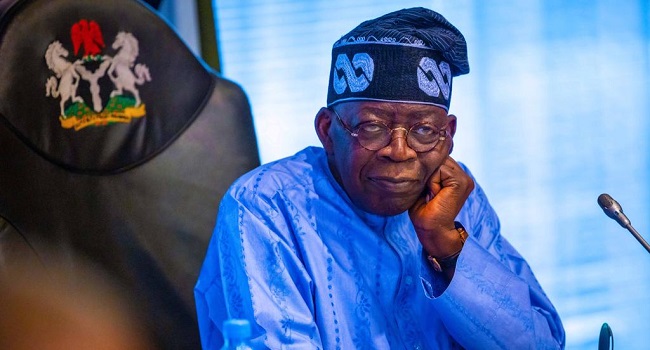The Secretary General of Jama’atu Nasir Islam (JNI), Professor Khalid Abubakar Aliyu as well as the President, Christian Association of Nigeria (CAN), Archbishop Daniel C. Okoh, have noted that the increasing rate of hunger and insecurity in the country is worrisome.
They made the observation at the 6th Annual Inter-Faith Peace Conference in partnership with Kaduna State government on Thursday.
Speaking at the event, the Secretary General of JNI, Professor Khalid Abubakar Aliyu remarked that “Nigeria is passing through trying times of hunger and starvation, abject poverty, insecurity, breakdown of law and order, dwindling morality, diminishing family values, dilapidation of infrastructures, bad governance and monumental corruption.
“All these are indices of looming problems which result in societal decay and chaos. Something urgent must be done by those in whose hands Allah has entrusted leadership at various levels and capacities to address these myriads of problems.
ALSO READ: Osun monarch lauds Oyetola for renovating hometown’s palace
“Poverty and insecurity are intertwined social phenomena that pose significant challenges to Nigeria’s development and stability. Despite being endowed in human and natural resources, as well as cultural diversity, Nigeria continues to grapple with high levels of poverty and insecurity, which invariably affects its steady economic growth as a nation.
“Nigeria’s diverse ethnic and religious landscape has sometimes led to conflicts, which further exacerbate poverty and insecurity, as funds that should go for development and health care delivery would be used for rebuilding of state institutions destroyed by ethnic and religious conflicts.
“Religious leaders could play crucial roles in promoting peace and tolerance, thereby reducing tensions that contribute to insecurity. Islam provides a comprehensive framework for addressing poverty and insecurity, emphasising the importance of social justice, honesty, and community support.
“By adhering to these principles and working together in a spirit of cooperation, we can overcome these challenges and build a more prosperous and secure Nigeria for all its citizens”.
Speaking in the same vein, the CAN President, Archbishop Okoh, who was represented by Bishop Sunday Onuoha, said, “There is too much hunger in the land and nobody is safe. We are all responsible for our challenges in this country. Not too long ago, a fully loaded warehouse was taken over by hungry Nigerians in Abuja, and the federal government issued a statement and said they were criminals.
“Well, whether they are criminals or whatever you called them, the truth is that they are Nigerians fighting for survival. Nigerian leaders should off load all the warehouses wherever they are because Nigerians are hungry and they need food. If we can solve the problem of hunger, we have solved the problem of insecurity.”
Declaring the conference open, Kaduna state Governor, Senator Uba Sani who was the chairman of the occasion also noted that poverty and insecurity are the biggest challenges facing the country, adding that the challenges are major sources of worry to political leaders in the country.
He told the organisers that “Your choice of theme for this conference “Tackling Poverty and Insecurity in Nigeria: Our Collective Responsibilities” is apt.
“Poverty and Insecurity are the biggest challenges facing our country. The increasing poverty level is a major source of worry for political leaders.”
According to him, “addressing the issue of poverty is critical to restoring the people’s faith in our democracy. We are still struggling to address developmental challenges, especially in the areas of infrastructure, education, health, agriculture, and security.
“This is the time for all stakeholders to join hands to tackle our security and developmental challenges. We must however approach our problems from a position of knowledge. Our approach must be evidence -based. The starting point towards addressing insecurity in Nigeria is to carry out a comprehensive diagnostic review of the causes of insecurity in Nigeria.
“Research has a key role to play in our search for workable solutions to the seemingly intractable challenges of insecurity. If you know the causes of the problem, you will be able to fashion effective immediate, short term and long term strategies towards addressing it. Our actions have been ad-hoc and reactive. They do not flow from research. Our compass is faulty. We must get the correct compass.
“To make progress in the area of security, we must ask the critical questions and fashion the appropriate strategies. How can we reset our security architecture in such a way that the proactive instead of reactive approach will be adopted in tackling insecurity in Nigeria.
“This is where Strategic Thinking comes in. Security Leaders and Forces are more adept at Tactical Thinking. They want to deal with situations quickly and decisively. But the nature of our current and emerging security challenges requires deeper thinking and planning. You must study the nature of a given environment; the topography, the people, culture, politics and changing dynamics,” he added.
